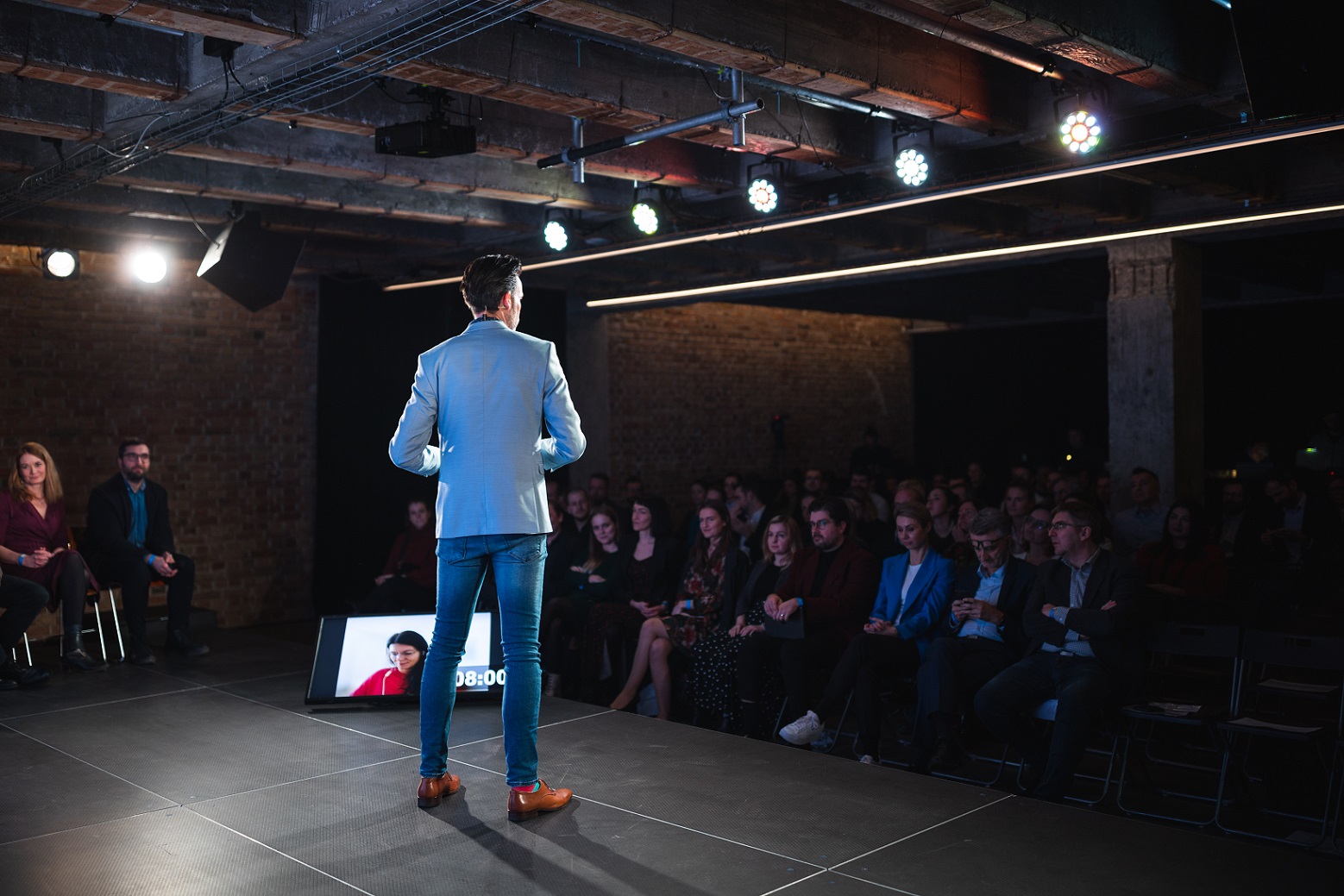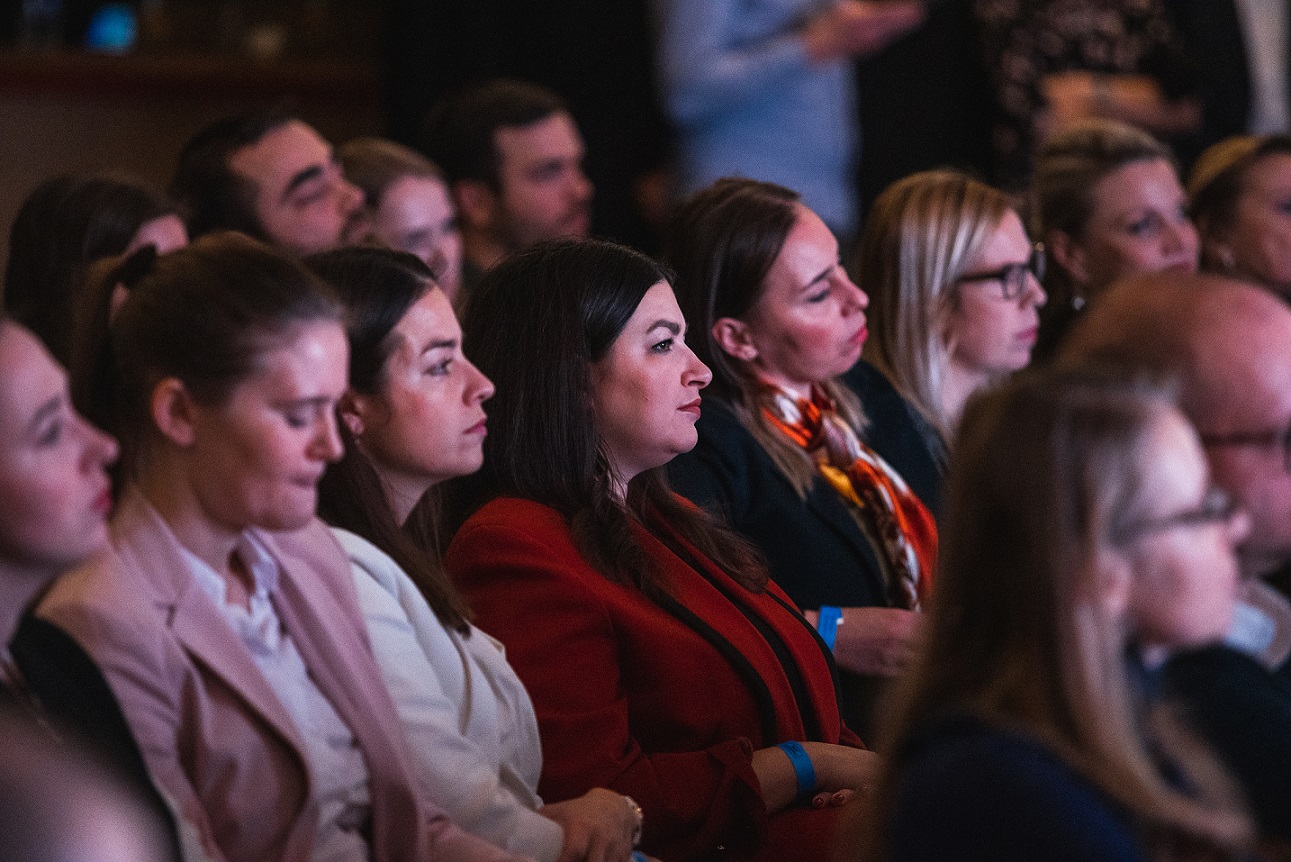Ben Rhodes will provide a global perspective on the recession of democracy, and we will also welcome an academic from Stanford University and public figures from Slovakia.
At the Impact Summit, we will connect people from business, government and civil society. The biggest societal challenge we are currently facing in the world and in Europe is the strengthening of democratic principles. We will therefore bring speakers who will name the causes of the crisis of democracy and describe a number of current trends from abroad that contribute to solving this problem. At the conference we will also present committed people from Slovakia and their activities changing our country for the better.
Main topics of the Impact Summit
When we were preparing the program at the beginning of the year, among several trends and themes, one was more prominent – the threat to some democracy principles. This is a global problem that threatens even advanced democracies, not only Slovakia. We have written about it in more detail in a previous article.
One of the key tools to address such societal challenges are social innovations that can introduce workable solutions to the identified problems. We will showcase them at the Summit. We also intend to connect the civic, public and private sectors, as only the collaboration of people from different spheres can deliver sustainable solutions.
At the Pontis Foundation, we believe that the relationship between democracy and social innovation is reciprocal. Strong democratic principles are the basis for further innovation in all areas. Conversely, innovation enables the strengthening of a modern democracy that can take care of the needs of all citizens.
The global and local context of the crisis of democracy
At the Impact Summit we will talk about the reasons for the recession of democracy. Benjamin J. Rhodes, American author, political commentator, former National Security Advisor and Strategic Communications Advisor to President Barack Obama, will be the keynote speaker. Ben will present the reasons for the rise of authoritarian leaders in Europe, he will also talk about the “orbanization” of Central Europe. He will show the context of political and social developments, naming the role of Central Europe and Slovakia in the context of the decline of democracy, the war in Ukraine, and the challenging socio-economic situation of the population. He will highlight the role of civil society and social innovation as a product of civil society organizations.
A psychologist, journalist and sociologist will meet. It sounds like the beginning of a joke, but at the Impact Summit they will talk about serious issues. Psychologist, senior trainer, consultant at PDCS Dušan Ondrušek, editor-in-chief of SME daily Beata Balogová, sociologist, director of Focus research agency Martin Slosiarik will talk about the current state of democracy in Slovakia and possible solutions to strengthen it.
Cooperation and social innovation
We consider cooperation between people from different spheres to be crucial for the success of social innovations. In particular, Michaela Kršková, the first Chief Innovation Officer of the Slovak government, Michal Hladký, Director of Creative Industry Košice, a representative of the Slovak Savings Bank (TBA) and a representative of the public administration (TBA) will talk about cooperation between the public, corporate and civil sectors together in a panel discussion. They will analyze the role of public administration in supporting social innovation, including challenges and successes. We will also inquire the vision and idea of cross-sector collaboration. Topics will also include an update on the current status of the Research and Innovation Strategy and the role of all sectors in delivering the strategy.
Political inovations
We are very pleased that Johanna Mair, Professor at the Hertie School in Berlin, has accepted the invitation to the Impact Summit. She is also a visiting professor at Stanford University and editor of the Stanford Social Innovation Review, a peer-reviewed journal that is an authority on social innovation. In this interview, she introduces the concept of policy innovation. Behind this concept lies social innovation aimed at strengthening democracy – reducing the gap between civil society actors and politicians, increasing trust, and collaboration between politicians, civil society and the business sector. Johanna will explain how to involve under-represented groups in politics. She will also talk about the role of philanthropy in policy innovation.
A concrete idea of political innovation will be presented by the directors of the Multitudes Foundation – Sarah Durieux and Jeff Kwasi Klein. From their presentation, we can anticipate a disruption (in a positive sense) of the current perception of the role of civil society and the state in promoting democracy. Sarah and Jeff will also bring a number of examples from the recent Europe-wide call for political innovation.
Examples from Slovakia
Interspersed throughout the Impact Summit will be short presentations by CSOs involved in the Impact Lab Incubator and Impact Lab Accelerator. Representatives of the organizations will show concrete examples from Slovakia through which they contribute to reducing threats to democracy, for example through education, support for critical thinking, training of leaders in public administration, etc. as follows Martina Bolibruchová (Zmudri), Martin Kováč (Old Catholics in Slovakia), Jakub Hrbáň (Climate Needs You), Michal Horský (Demdis), Michala Hrdinová (Public Leadership Academy), Ľuboš Kostelanský (Transparency International Slovakia).

